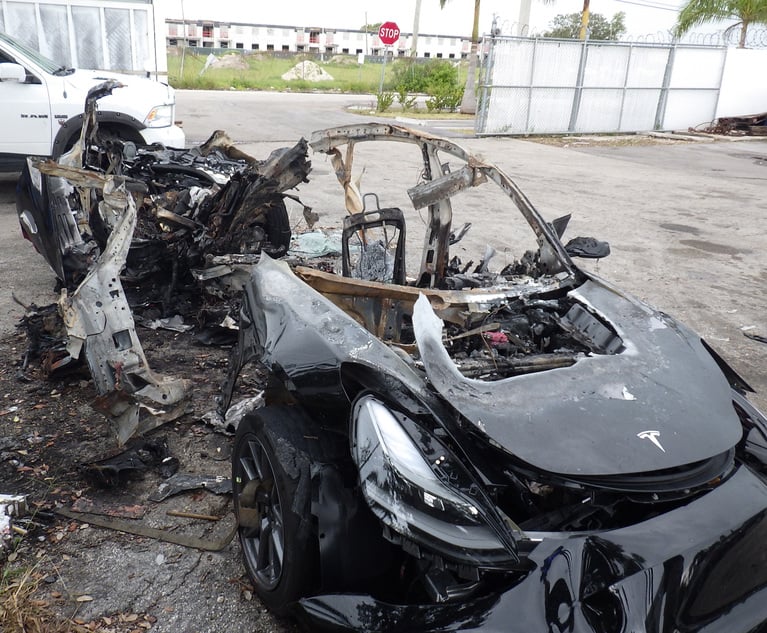NU Online News Service, June 1, 4:27 p.m.EDT
|WASHINGTON–Railroad workers who seek damages for mentalanguish out of fear they will get cancer from exposure to asbestosmust show that "fear is genuine and serious," the Supreme Courtruled today.
|The Supreme Court decision reversed a ruling by a lower courtand by the Tennessee Court of Appeals and sent the case back toTennessee based on the court decision.
|The decision in CSX Transportation Inc. v. ThurstonHensley, No. 08-1034, was a rare unanimous decision by theHigh Court, and one in which no judge took specific credit for thelanguage in the ruling.
|The Supreme Court cited an earlier 2003 decision in Norfolk& Western R. Co. v. Ayers, which held that mental anguishdamages are available in certain Federal Employers Liability Act(FELA) cases. FELA is the law passed by Congress in 1908 whichprovides a legal remedy for injured railroad workers rather thanworkers' compensation..
|But, the court said, the trial court judge was wrong in notinstructing the jury about whether the fear was "genuine andserious."
|"We decline to blur, blend, or reconfigure our FELAjurisprudence in the manner urged by the petitioner; instead, weadhere to the clear line our recent decisions delineate," the courtsaid in its opinion.
|In the case just decided, Thurston Hensley, an electricianemployed by CSX in Tennessee, sued CSX in Tennessee statecourt.
|Mr. Hensley alleged that the railroad negligently caused him tocontract asbestosis, a noncancerous scarring of lung tissue causedby long-term exposure to asbestos.
|Mr. Hensley sought pain-and-suffering damages from CSX based on,among other things, his fear of developing lung cancer in thefuture.
|A jury awarded him $5 million after two hours deliberation.
|The trial court refused to instruct the jury before the verdict,as requested by the defendant company, that it must considerwhether the fear of cancer was "genuine and serious," and theTennessee Supreme Court affirmed that ruling.
|Mark Behrens, a partner at Shook, Hardy & Bacon L.L.P., saidthe decision was very important.
|"Today shut the door on a potential flood of flimsy orfraudulent asbestos cases brought by railroad worker plaintiffsunder the Federal Employers' Liability Act (FELA), a statute whichprovides a 'tort substitute' for worker compensation in therailroad industry," he said.
|He added that the decision reaffirmed that a FELA plaintiffseeking emotional harm damages for fear of developing cancer in thefuture must prove that the fear is "genuine and serious."
|Mr. Behrens submitted a friend of the court brief at the requestof several property-casualty insurance industry trade groups andother trade groups representing industry, that was accepted by thecourt as part of its decision returning the case to lower courtsfor further proceedings.
|In their brief, lawyers for the trade groups argued that thelower court, "which holds that a defendant has no right to a'genuine and serious fear' jury instruction, is not onlyinconsistent with this court's holding in" a 2003 case, "but alsoignores the important policy concerns which guided this court'sdecisions" in two prior cases.
|In his comments, Mr. Behrens said that, in summarily reversingthe Tennessee courts, the U.S. Supreme Court said the ruling below"conflicts with [a prior decision]" and that " the trial courtshould have given the substance of the requested instructions."
|Mr. Behrens said the decision is important for a number ofreasons.
|"First and most obviously, the opinion will help protectrailroad defendants from potentially countless thousands of junklawsuits asking for money damages without a showing that the fearof cancer is "genuine and serious," he said.
|Second, he said the court noted, "once again, the difficultiesposed by the 'elephantine mass of asbestos cases' and confirmedthat a 'delicate balance' must be drawn between plaintiffs anddefendants."
|He added, "The court appreciated that allowing weak orunmeritorious fear of cancer claims could swamp the courts, delayrecoveries for claimants with serious conditions, bankruptdefendants, and jeopardize recoveries for cancer victims."
Want to continue reading?
Become a Free PropertyCasualty360 Digital Reader
Your access to unlimited PropertyCasualty360 content isn’t changing.
Once you are an ALM digital member, you’ll receive:
- All PropertyCasualty360.com news coverage, best practices, and in-depth analysis.
- Educational webcasts, resources from industry leaders, and informative newsletters.
- Other award-winning websites including BenefitsPRO.com and ThinkAdvisor.com.
Already have an account? Sign In
© 2024 ALM Global, LLC, All Rights Reserved. Request academic re-use from www.copyright.com. All other uses, submit a request to [email protected]. For more information visit Asset & Logo Licensing.








